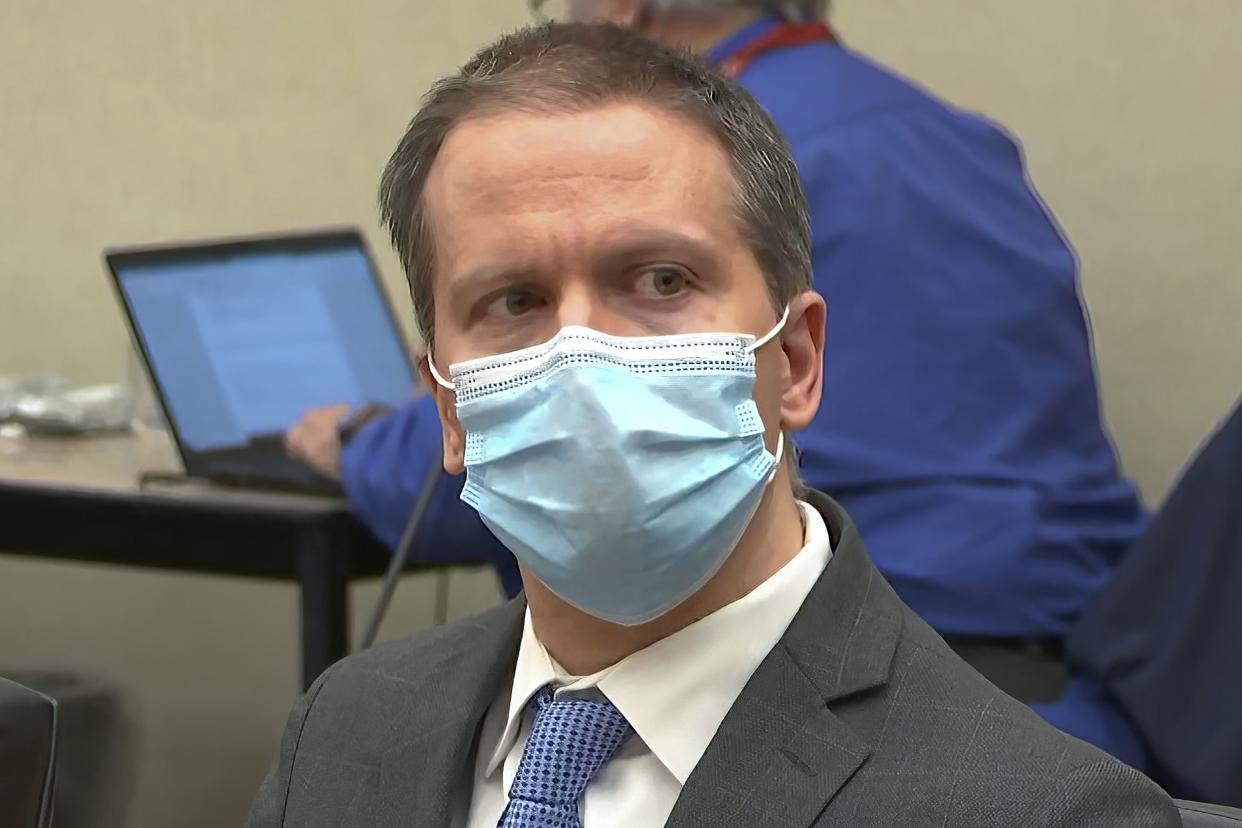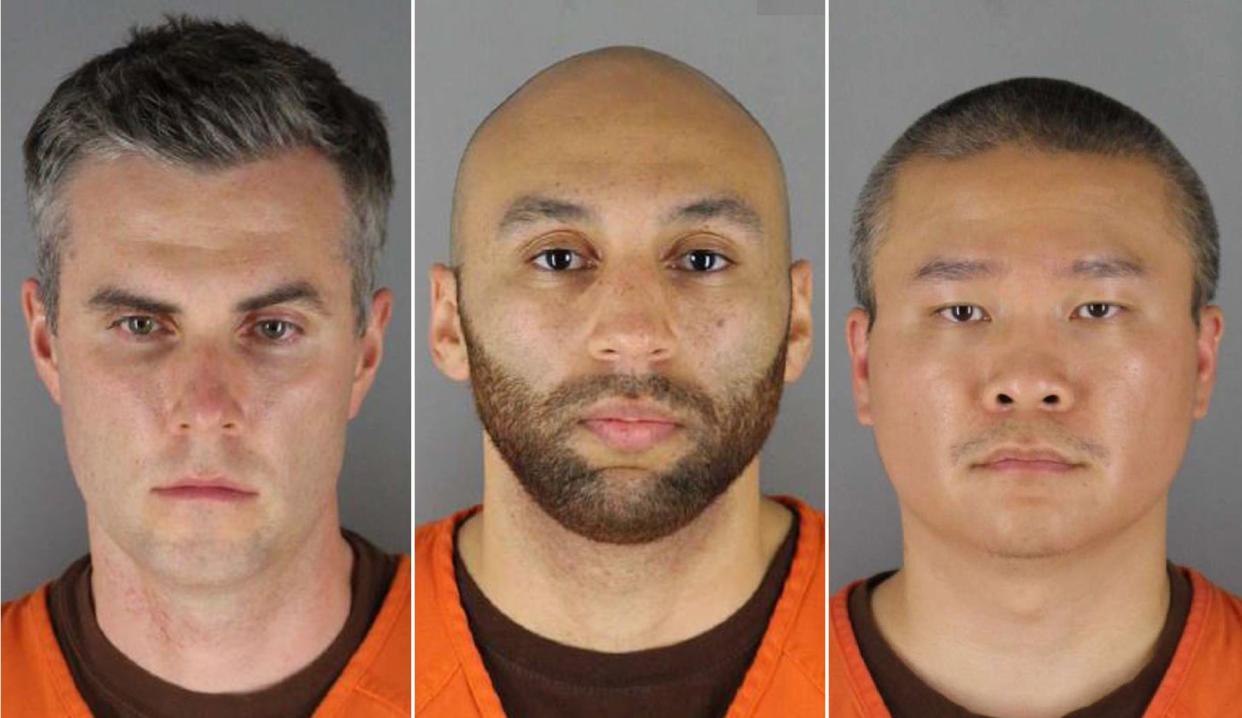What’s next for Derek Chauvin after his guilty verdicts for the murder of George Floyd?
Within seconds of his guilty verdicts being read aloud Tuesday afternoon, Derek Chauvin was led out of the Hennepin County courtroom in handcuffs, facing the next several decades of his life.
Chauvin, a former Minneapolis police officer, was found guilty on all three charges, second-degree unintentional murder, third-degree murder and manslaughter, for the May death of George Floyd. He has already been moved Minnesota Correctional Facility-Oak Park Heights, a maximum security prison about 25 miles east of downtown Minneapolis.
So what comes next?

Sentencing
Chauvin is expected to face sentencing in about eight weeks.
Maximum sentences for each charge are 40 years for second-degree unintentional murder, 25 years for third-degree murder and 10 years for second-degree manslaughter. But Minnesota sentencing guidelines suggest much shorter, particularly for a first-time offender like Chauvin. Those suggestions advise 12.5 years for each murder charge and four years for manslaughter.
Prosecutors, however, have asked for more severe sentences, citing the facts that Floyd was particularly vulnerable, lying face-down on the street, that Chauvin was a uniformed officer acting in a position of authority and that multiple children witnessed him kneeling on top of Floyd.
Minnesota Attorney General Keith Ellison said Tuesday that they would be seeking a “fair” and “just” sentence.
“We believe there are aggravating factors and the sentence should exceed the sentencing guidelines,” he said.

Trials for three other officers
Three of Chauvin’s colleagues, Tou Thao, J. Alexander Kueng and Thomas Lane, are scheduled to begin their trial on Aug. 23 for allegedly aiding and abetting the second-degree murder and second-degree manslaughter of Floyd.
Lane and Keung were the first to arrive at the Cup Foods were Floyd was accused of trying to use a counterfeit $20 bill to buy cigarettes. Lane ordered Floyd out of his car and handcuffed him, while Keung was the first to check Floyd’s pulse.
Thao never appeared to touch Floyd, but stood between the handcuffed victim and the witnesses pleading for Chauvin to get off of him.
Each faces up to 40 years in prison if convicted.
Everything else
The Justice Department previously announced a federal civil rights investigation into Floyd’s death, which Attorney General Merrick Garland confirmed Tuesday was still ongoing. A grand jury was convened in late February, according to the Star Tribune, and witnesses are expected to focus on whether Chauvin used excessive force while killing Floyd.
The George Floyd Justice in Policing Act was introduced into the House in late February by a group of Democrats and passed 220–212, mostly along party lines. The bill, which still has to be voted on by the Senate, is a self-described “bold, comprehensive approach to hold police accountable, end racial profiling, change the culture of law enforcement, empower our communities, and build trust between law enforcement and our communities by addressing systemic racism and bias to help save lives.”
Among the act’s proposals is banning racial, religious and discriminatory profiling, prohibiting chokeholds and no-knock drug warrants for federal officers, requiring body cameras and establishing grants for community-based commissions and task forces that focus on public safety.
“We need Congress to act,” President Biden said during an address Tuesday night.
